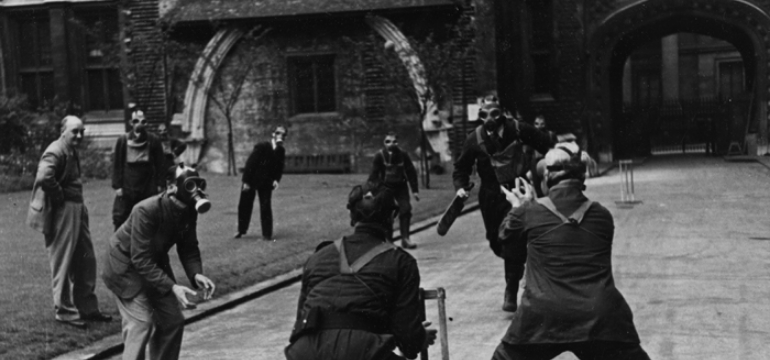Life with Archie No. 36 (via Archie Comics)
For those of us who grew up reading about Betty Cooper, Veronica Lodge and Archie Andrews, a surprising piece of news was dropped earlier this week: The Life with Archie spin-off series, which focuses on grown-up renditions of the character and his friends, would end with Archie’s death. The plot twist wasn’t merely a stunt; it was political. Archie’s death would be the result of being fatally shot by an assassin targeting his friend, an openly gay senator campaigning for gun control.
What’s notable about this news is not the death of a comic book character. After all, the May issue of Life with Archie sold only 2,064 copies, and it’s unlikely that Archie’s death will revive the struggling brand. What is significant, though, is how people have responded to the cause for which he is dying.
The Media Development Authority, a statutory board of the Singapore government responsible for regulating media, announced that they will be banning the issue of the Life with Archie series because its content “breached guidelines by depicting same-sex marriage of two characters” and that the comic was “not in line with social norms.”
And Tango Makes Three by Justin Richardson and Peter Parnell (via Daily Slave)
The White Swan Express by Jean Davies Okimoto and Elaine M. Aoki (via Grand River Toys)
This news comes on the heels of another Singapore book banning. It was recently reported that authorities have withdrawn from libraries two children’s books featuring same-sex couples: And Tango Makes Three, a book about a pair of gay penguins, and The White Swan Express, which features a lesbian couple. Both books were removed after a library user wrote in to the National Library Board expressing disdain for and concern about their content. In response, the NLB pulled the titles from their shelves, and the country’s information minister, Yaacob Ibrahim, has vocalized his support for the decision for all copies of the books to be pulped.
It’s worth noting that And Tango Makes Three, which is based on the real-life story of two male penguins who hatched an egg at New York's Central Park Zoo, has sparked a great deal of controversy in the United States as well. It has topped the American Library Association’s 10 Most Challenged Books List between 2006 and 2010. However, there is a notable difference between mere controversy and actual banning.
Both of the Singapore book bannings point to larger issues of human rights in Singapore, where gay sex remains a criminal offense. Gay rights proponents have launched two constitutional challenges to overturn discriminatory laws, and last month, more than 26,000 individuals attended a gay rights rally, the largest in Singapore’s history.
What differentiates the Archie banning from the children’s books is that, at this point, it remains unclear whether Archie was banned due to outside pressures (like the NLB responding to complaints) or because of an autonomous decision by the MDA.
Sonny Lieu, a Singapore-based illustrator, published a blog post expressing his vexation regarding the Archie ban and his larger fears regarding publishing in Singapore. He writes, “What other titles might also have faced sales bans without any wider public awareness? How does the MDA discover them and make decisions about them?” They are alarming questions, and what’s even more unnerving is that it’s unclear when or if they will ever be answered.
Michelle King grew up in South Florida and now lives in Brooklyn. Her contributions have appeared on BULLETT, Refinery29 and The Topaz Review. Harriet M. Welsch is still her role model and probably always will be.
KEEP READING: More on Politics







 A Black Balloon Publication ©
A Black Balloon Publication ©